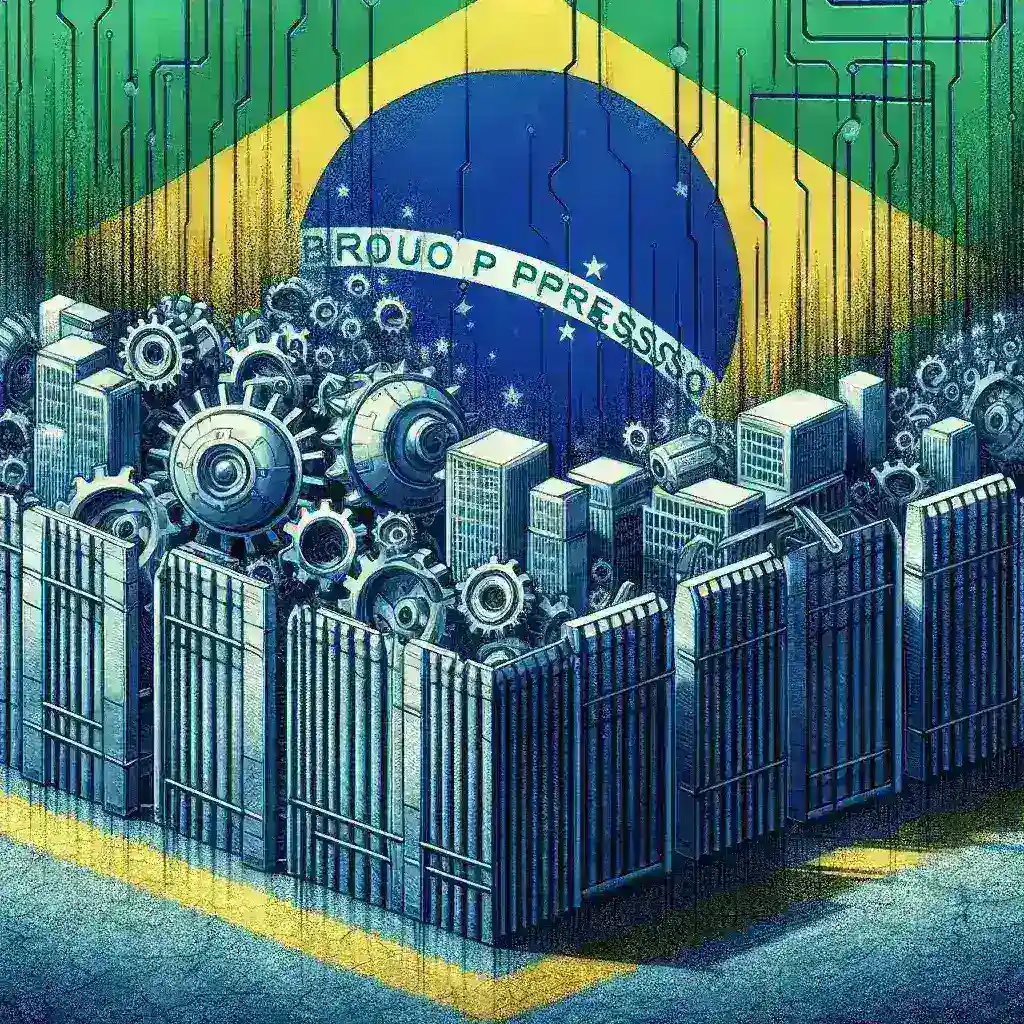Introduction
As the global tech landscape continues to evolve, nations are increasingly scrutinizing their regulatory frameworks to adapt to the rapid advancements in technology. Brazil, one of the largest economies in South America, has found itself in a precarious position, particularly in light of the Trump administration’s tariff threats. This article delves into how these threats are shaping Brazil’s tech regulations and what this means for the future of the country’s tech industry.
The Current State of Brazil’s Tech Regulations
Brazil’s technology sector has been growing steadily over the past decade, with innovations in fintech, e-commerce, and digital services. However, the regulatory environment has often been criticized for being cumbersome and slow to adapt to new technologies. The government has been working to streamline regulations in order to foster innovation and attract foreign investment.
Historical Context
Historically, Brazil has faced challenges in creating a cohesive technology policy. In 2014, the Marco Civil da Internet was enacted, establishing principles for internet usage and ensuring user rights. While this was a significant step toward comprehensive tech regulation, subsequent laws have struggled to keep pace with technological advancements.
Pressure from International Trade Dynamics
With the rising tensions in international trade, particularly under the Trump administration, Brazil’s tech regulations are now under scrutiny. The potential imposition of tariffs on Brazilian tech exports poses a significant risk for the country, particularly in industries that rely heavily on international markets.
Tariffs and Their Implications
Tariffs can have a ripple effect, impacting not only trade balances but also innovation and investment. For Brazilian tech companies, the fear of increased costs could lead to reduced competitiveness in global markets. This pressure may force the Brazilian government to reconsider its regulatory approach to protect its tech sector.
Future Predictions for Brazil’s Tech Regulations
As the U.S. continues to exert pressure on international trade policies, Brazil’s government may have to adapt its regulations to safeguard its tech industry. Predictions suggest that Brazil could move towards more favorable trade agreements with other countries to counterbalance the impact of U.S. tariffs.
Pros and Cons of Current Regulatory Framework
- Pros:
- Encourages local innovation and entrepreneurship.
- Sets clear guidelines for internet governance and user rights.
- Cons:
- Often seen as bureaucratic and slow to adapt.
- Potentially discourages foreign investment due to perceived instability.
Expert Opinions and Analysis
Many experts believe that Brazil’s response to tariff threats will be crucial in determining the future of its tech regulations. According to Dr. Ana Silva, a leading technology policy analyst, “The Brazilian government must navigate these pressures carefully. A proactive approach to reforming regulations could not only mitigate the impacts of tariffs but also position Brazil as a leader in tech innovation in Latin America.”
Real Examples of Impact
Companies like Movile, the parent company of the popular delivery app iFood, have expressed concerns regarding the potential impact of tariffs on their operations. If import duties increase, the cost of doing business may rise, affecting pricing strategies and market competitiveness.
Cultural Relevance
The cultural landscape in Brazil is also intertwined with technology. The country’s youth is increasingly tech-savvy, and there is a strong push for digital inclusion across various segments of society. Thus, any regulatory changes need to consider the socio-economic fabric of Brazil, ensuring they do not hinder access to technology for the underprivileged.
Navigating the Future: A Step-by-Step Approach
To adapt to these challenges, Brazil may consider the following steps:
- Engage in dialogue with tech industry leaders to understand their concerns.
- Propose reforms that simplify regulations while ensuring consumer protection.
- Enhance partnerships with foreign governments and organizations to foster trade relations.
- Invest in research and development to support innovation at home.
Conclusion
As Brazil grapples with the pressures from the Trump administration’s tariff threats, it stands at a crossroads. The decisions made now regarding tech regulations will have long-lasting implications for the country’s economic future and its position in the global tech landscape. By striking a balance between regulation and innovation, Brazil can navigate these turbulent waters and emerge stronger on the other side.

Leave a Reply